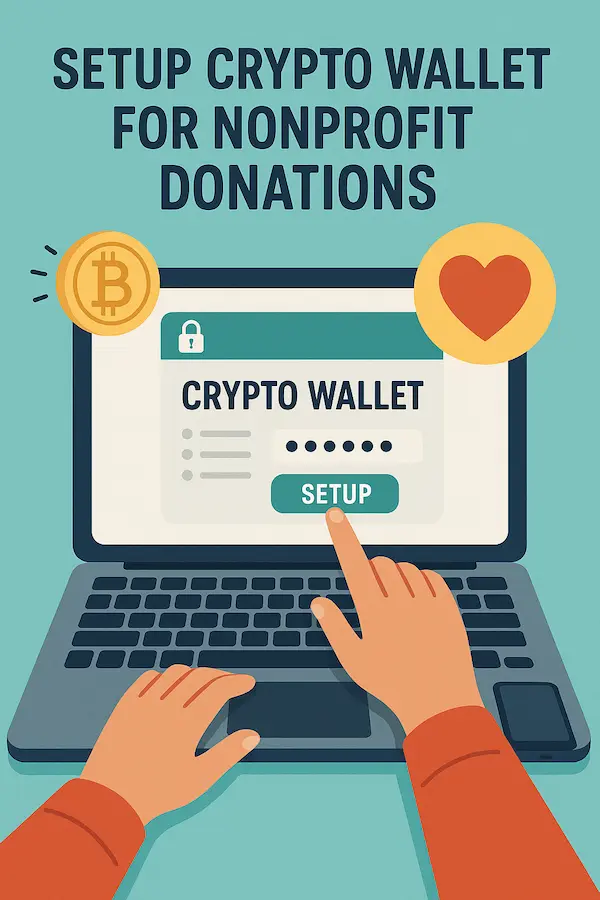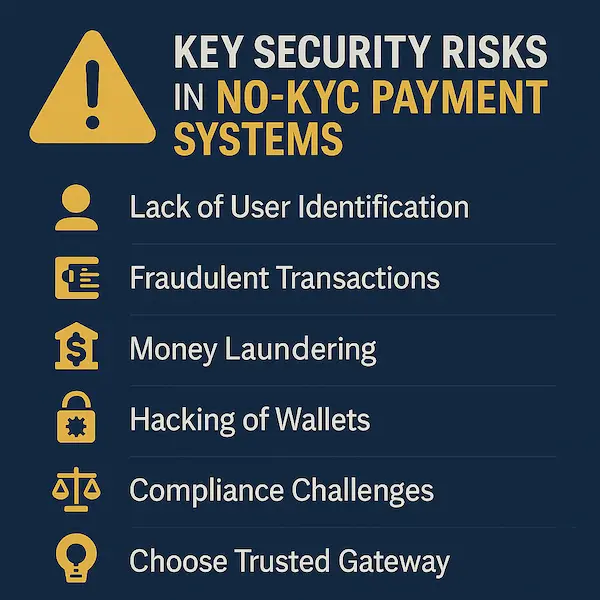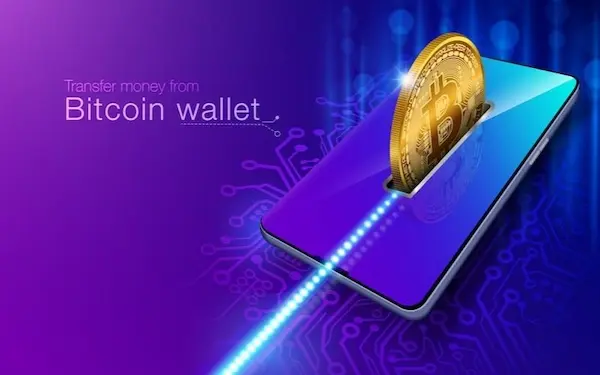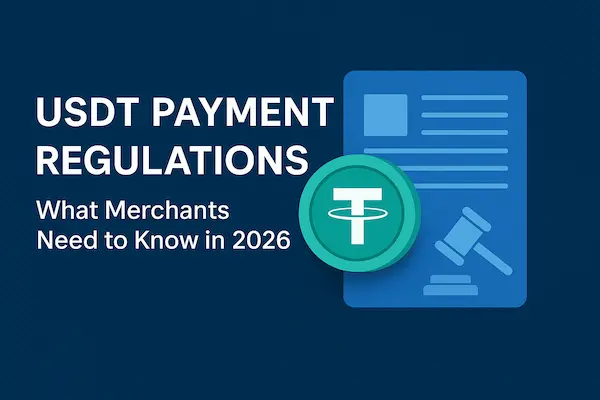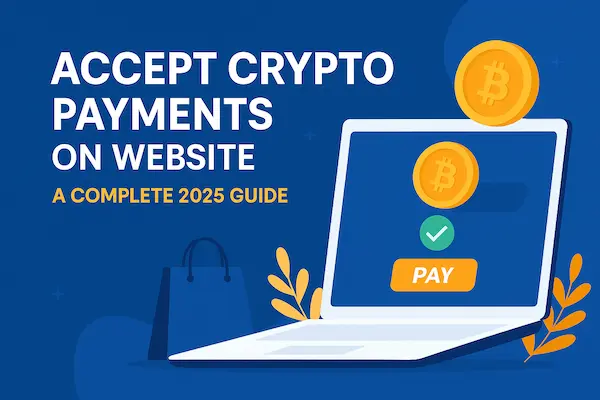In the modern digital world, non profit organizations are constantly trying to find new method of accepting crypto donations for NGOs and broaden their donor pool. Cryptocurrency donations may serve as a very effective method of attracting Younger and technologically advanced donors to support NGOs besides providing donors with new opportunities of smoothness and transparency. The distributed yet comprehensive review provides an overview of the major crypto donation services that global NGOs could use to raise money through donations in digital currencies, where the organizations could make an informed choice on deciding to adopt a digital currency fundraising program.
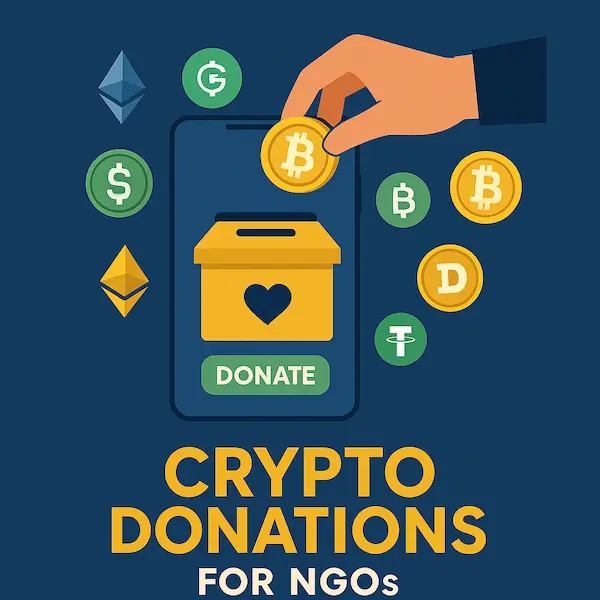
Contents
- 1 Understanding Crypto Donations for NGOs
- 2 Leading Crypto Donation Platforms for NGOs
- 3 Platform Comparison: Features and Capabilities
- 4 Implementation Strategies for NGOs
- 5 Security and Compliance Considerations
- 6 Cost Analysis and ROI
- 7 Challenges and Solutions
- 8 Future Trends and Opportunities
- 9 Implementation Checklist
- 10 Best Practices for Success
- 11 Frequently Asked Questions – Crypto Donation Platforms for NGOs
- 12 Conclusion: Embracing Crypto Donations for Sustainable NGO Growth
Understanding Crypto Donations for NGOs
Cryptocurrency donations constitute a paradigm change of an opportunity to support mobile crypto payments with cryptos by their donors in a list of global locations. In contrast to regular donation methods, crypto donations have unique benefits like reduced processing charges, high speed and transparency due to the usage of the blockchain.
A new generation of millennial and Gen Z donors has made a radical shift toward cryptocurrency, thus providing a major opportunity to NGOs. The latest statistics in the industry have revealed that charities that embrace mobile crypto payments have seen a donation growth level of up to 300 percent among the younger generation. The tendency indicates varying demands of digital-native donors following their interests to contribute to their charitable actions with the help of cryptocurrency.
Key Benefits of Crypto Donation Platforms
Modern crypto donation platforms provide NGOs with sophisticated tools to accept crypto donations for NGOs seamlessly. These platforms typically offer:
Enhanced Donor Experience: Mobile-optimized interfaces allow supporters to donate using their preferred cryptocurrency wallets directly from their smartphones. This convenience factor significantly improves donation completion rates.
Global Reach: Cryptocurrency transcends geographical boundaries, enabling NGOs to accept crypto donations for NGOs from international supporters without traditional banking restrictions or currency conversion fees.
Transparency: Blockchain technology provides immutable records of all transactions, allowing donors to track their contributions and ensuring accountability in how funds are used.
Cost Efficiency: Traditional payment processors often charge 2-5% in fees, while crypto donations typically incur lower transaction costs, especially for larger donations.
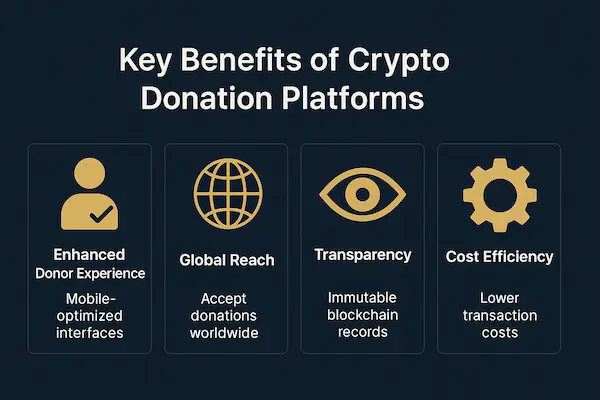
Leading Crypto Donation Platforms for NGOs
1. XAIGATE
XAIGATE is a modern, blockchain-native platform designed to help NGOs and businesses accept crypto donations with ease. It stands out for its sleek mobile-first interface and powerful backend tools.
Why NGOs like it:
-
Supports a wide range of coins: BTC, ETH, BCH, USDT, DOGE, and more
-
Seamless integration with existing fundraising websites or e-commerce setups
-
Built-in features for automated tax reporting and real-time analytics
-
Developer-friendly APIs and flexible configuration options
-
Great for organizations that want a smooth experience without deep technical knowledge
“XAIGATE helped us reach new donors while cutting costs and streamlining the donation process,” shares Kim Tran, CTO at Asia Impact Alliance.
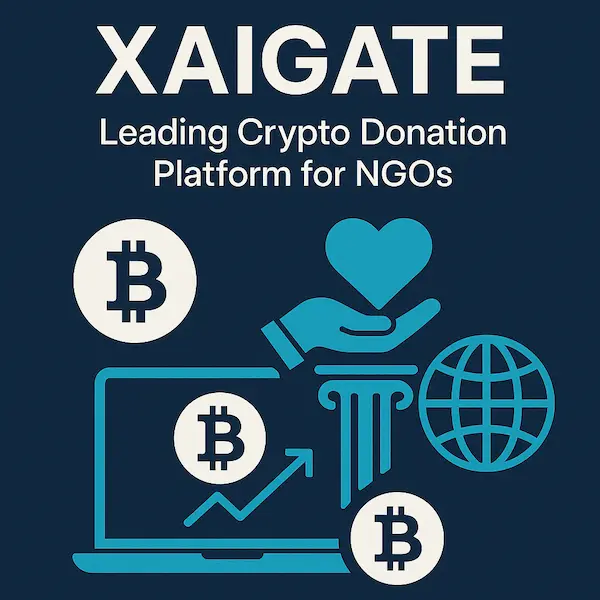
2. The Giving Block
The Giving Block stands out as one of the most comprehensive platforms for NGOs looking to accept crypto donations for NGOs. Founded in 2018, this platform has facilitated millions of dollars in crypto donations for over 1,000 nonprofits.
Key Features:
- Support for 30+ cryptocurrencies including Bitcoin, Ethereum, and Litecoin
- Mobile-optimized donation widgets that allow organizations to accept crypto donations for NGOs easily
- Automatic conversion to USD to minimize volatility risks
- Tax receipt generation for donors
- Integration with popular fundraising platforms
“The Giving Block has revolutionized how we think about fundraising. The ability to accept mobile crypto payments has opened up entirely new donor segments for our organization,” says Sarah Mitchell, Development Director at Ocean Conservation Alliance.
3. Coinbase Commerce
Coinbase Commerce offers a robust solution for NGOs seeking to accept crypto donations for NGOs through one of the most trusted names in cryptocurrency. This platform leverages Coinbase’s infrastructure to provide reliable, secure donation processing.
Advantages:
- Integration with Coinbase’s extensive user base
- Mobile-first design optimized for smartphone donations
- Support for major cryptocurrencies
- Real-time conversion rates
- Comprehensive analytics and reporting
4. Engiven
Engiven specializes in helping faith-based organizations and nonprofits accept crypto donations for NGOs while maintaining compliance with religious and ethical guidelines. Their platform emphasizes simplicity and user-friendliness.
Notable Features:
- Customizable donation forms
- Multi-currency support
- Mobile wallet integration
- Automated tax documentation
- Donor management tools
If your NGO is exploring how to receive donations in Bitcoin, Ethereum, or USDT but not sure where to begin, this step-by-step guide on accepting crypto donations for nonprofits by XAIGATE breaks it down clearly—no tech jargon, no headaches.
Platform Comparison: Features and Capabilities
Choosing the right crypto donation platform depends on your organization’s size, goals, and technical resources. Below is a side-by-side comparison of some of the top options available today—with XAIGATE leading the pack thanks to its mobile-first design, ease of use, and wide crypto support.
| Platform | Supported Coins | Mobile Optimization | Auto-Conversion to USD | Ease of Setup | Monthly Cost |
|---|---|---|---|---|---|
| XAIGATE | 9800+ | Excellent (mobile-first) | Yes (USD & stablecoins) | Very Easy | Free / Premium options |
| The Giving Block | 30+ | Excellent | Yes | Easy | $0 – $500 |
| Coinbase Commerce | 8+ | Very Good | Yes | Moderate | $0 – $300 |
| Engiven | 12+ | Good | Yes | Easy | $50 – $200 |
Why XAIGATE Leads the Way
-
User-Friendly Interface: Designed with mobile donors in mind, XAIGATE’s experience feels smooth and intuitive—whether you’re on a phone or desktop.
-
Seamless Integration: Easily plugs into your current website, fundraising page, or CRM without needing developers.
-
Full Crypto Coverage: Accepts all major coins including BTC, ETH, BCH, USDT, DOGE, and more.
-
Real-Time Reporting: Track donations, conversions, and donor insights from one clean dashboard.
-
Affordable: Perfect for both small grassroots NGOs and large international nonprofits.
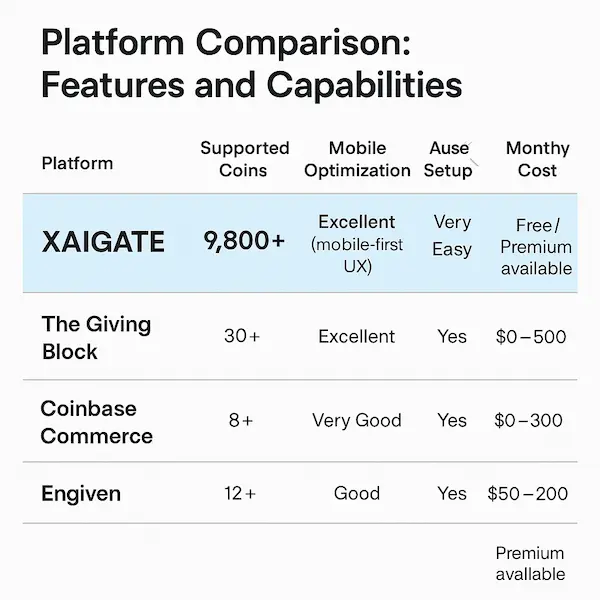
Implementation Strategies for NGOs
Technical Requirements
Organizations looking to accept crypto donations for NGOs should first assess their technical infrastructure. Most modern platforms require minimal technical expertise, but having basic web development knowledge can be beneficial.
Essential Components:
- SSL-secured website
- Mobile-responsive design
- Integration capabilities with existing CRM systems
- Staff training on cryptocurrency basics
- Legal compliance review
Donor Education and Communication
Successfully implementing crypto donations requires educating your donor base about the benefits and process. NGOs should develop clear communication strategies that explain:
- How to Use Mobile Wallets: Simple guides showing donors how to accept crypto donations for NGOs through their preferred wallet apps
- Tax Implications: Clear explanations of tax benefits and documentation requirements
- Security Measures: Transparency about how the organization protects donor information and funds
Marketing and Promotion
Effective promotion of crypto donation capabilities requires targeted messaging to appropriate audiences. Organizations should consider:
Social Media Campaigns: Platforms like Twitter and Reddit have active crypto communities interested in charitable giving
Influencer Partnerships: Collaborating with cryptocurrency influencers can help organizations reach new donor segments
Educational Content: Creating blog posts, videos, and infographics about cryptocurrency donations builds trust and awareness
Security and Compliance Considerations
Regulatory Compliance
NGOs must navigate complex regulatory requirements when they accept crypto donations for NGOs. Key considerations include:
KYC/AML Requirements: Anti-money laundering regulations may apply to cryptocurrency donations above certain thresholds
Tax Reporting: Organizations must properly report crypto donations to tax authorities and provide appropriate documentation to donors
International Regulations: NGOs operating internationally must comply with cryptocurrency regulations in all relevant jurisdictions
Security Best Practices
Implementing robust security measures is crucial for organizations that accept crypto donations for NGOs:
Multi-Signature Wallets: Using multi-signature wallets adds an extra layer of security for storing donated cryptocurrencies
Regular Security Audits: Conducting periodic security assessments ensures ongoing protection of donor funds
Staff Training: Educating staff about cryptocurrency security helps prevent common mistakes and vulnerabilities
Cost Analysis and ROI
|
Cost Factor |
Traditional Payments |
Crypto Payments |
Savings Potential |
|
Processing Fees |
2.9% + $0.30 |
0.2% |
40-50% |
|
International Fees |
4.4% + $0.30 |
$0 |
65-70% |
|
Chargeback Fees |
$15-$25 |
$0 |
100% |
|
Settlement Time |
2-3 days |
1-5 minutes |
Immediate |
Return on Investment
Organizations that accept crypto donations for NGOs typically see positive ROI within 3-6 months of implementation. The combination of reduced fees, faster settlement, and access to new donor segments creates compelling financial benefits.
“Within six months of implementing crypto donations, we saw a 40% increase in donation volume and a 60% reduction in processing costs,” reports David Chen, CFO of Global Education Initiative.
Challenges and Solutions
Volatility Management
Cryptocurrency price volatility presents unique challenges for NGOs. Most platforms that help organizations accept crypto donations for NGOs offer automatic conversion to stable currencies, minimizing exposure to price fluctuations.
Risk Mitigation Strategies:
- Immediate conversion to USD upon receipt
- Diversification across multiple cryptocurrencies
- Hedging strategies for larger donations
- Clear policies on volatility handling
Donor Adoption
Encouraging traditional donors to accept crypto donations for NGOs requires patient education and support. Organizations should provide:
Step-by-Step Guides: Comprehensive tutorials for using mobile wallets and making crypto donations
Support Resources: Dedicated support channels for donors experiencing difficulties
Incentive Programs: Special recognition or benefits for crypto donors to encourage adoption
Future Trends and Opportunities
Emerging Technologies
The landscape for organizations looking to accept crypto donations for NGOs continues evolving rapidly:
NFT Fundraising: Non-fungible tokens offer new opportunities for creative fundraising campaigns
DeFi Integration: Decentralized finance protocols may enable new forms of automated giving
Central Bank Digital Currencies: Government-issued digital currencies could simplify crypto donations
Market Projections
Industry experts predict that crypto donations will grow by 200-300% annually over the next five years. Organizations that establish crypto donation capabilities early will have significant advantages in capturing this growing market.
Implementation Checklist
Pre-Launch Requirements
Before organizations can accept crypto donations for NGOs, they should complete these essential steps:
- Board Approval: Obtain formal approval from the board of directors
- Legal Review: Consult with legal counsel on compliance requirements
- Technical Setup: Implement chosen platform and test thoroughly
- Staff Training: Educate team members on cryptocurrency basics
- Donor Communication: Develop messaging strategy for announcement
Launch Strategy
Soft Launch: Begin with a limited announcement to core supporters Feedback Collection: Gather user experience feedback and make improvements Full Launch: Announce crypto donation capabilities to entire donor base Ongoing Optimization: Continuously improve based on performance data
Best Practices for Success
Donor Engagement
Successful NGOs that accept crypto donations for NGOs focus heavily on donor engagement:
Regular Updates: Provide transparent reporting on how crypto donations are used Community Building: Create forums or groups for crypto donors to connect Recognition Programs: Acknowledge crypto donors through special programs
Technology Management
Regular Updates: Keep platforms and security measures current Backup Systems: Maintain redundant systems for critical functions Performance Monitoring: Track donation volumes and conversion rates
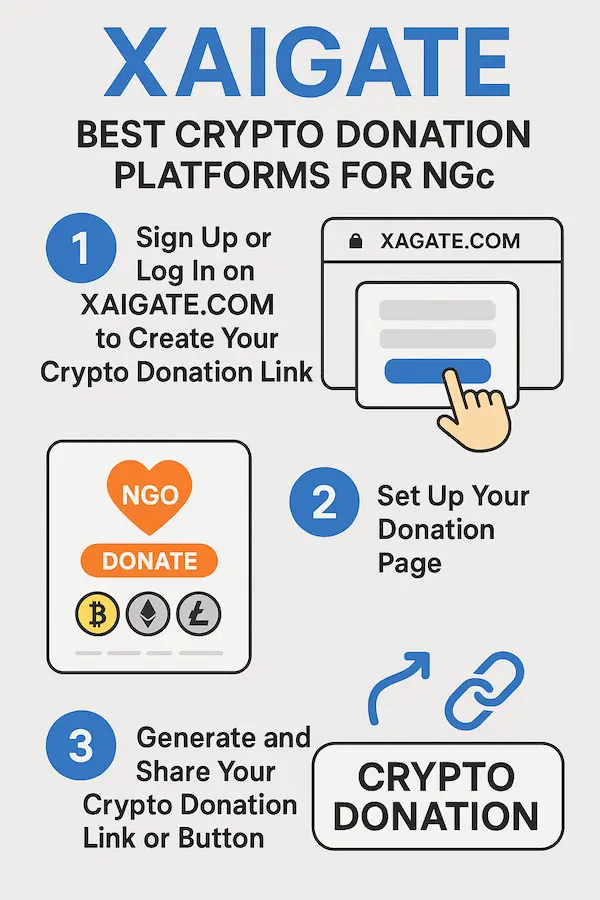
Frequently Asked Questions – Crypto Donation Platforms for NGOs
1. What cryptocurrencies should our NGO accept?
Most platforms that help organizations accept crypto donations for NGOs support Bitcoin, Ethereum, BCH, USDT, USDC, and LTC as standard options. These three cryptocurrencies represent the majority of crypto donations and offer the best balance of adoption and stability.
2. How do we handle tax reporting for crypto donations?
Crypto donations are treated similarly to stock donations for tax purposes. Organizations must track the fair market value at the time of donation and provide appropriate documentation to donors. Most platforms that help NGOs accept crypto donations automatically generate necessary tax forms.
3. Are crypto donations secure?
Yes, when implemented properly. Blockchain technology provides enhanced security compared to traditional payment methods. Organizations should choose reputable platforms and follow security best practices to ensure donor funds remain protected.
4. How quickly can we start accepting crypto donations?
The timeline varies by platform, but most NGOs can begin to accept crypto donations for NGOs within 2-4 weeks of starting the implementation process. This includes setup, testing, and staff training.
5. What if cryptocurrency prices drop after we receive a donation?
Most platforms offer immediate conversion to stable currencies, eliminating price volatility risks. Organizations can choose to hold cryptocurrencies for potential appreciation or convert immediately based on their risk tolerance.
6. Do we need special licenses to accept cryptocurrency?
Regulatory requirements vary by jurisdiction. Most NGOs can accept crypto payments without special licenses, but organizations should consult with legal counsel to ensure compliance with local regulations.
7. How do we educate our donors about crypto donations?
Successful donor education involves creating simple, clear guides that explain the donation process step-by-step. Focus on the benefits for donors, such as potential tax advantages and increased transparency, rather than technical details.
8. Can we integrate crypto donations with our existing fundraising platform?
Yes, most platforms that help organizations accept crypto donations for NGOs offer integration options with popular fundraising platforms and CRM systems. This allows for seamless donor management and reporting.
Conclusion: Embracing Crypto Donations for Sustainable NGO Growth
NGOs revealing the chance to receive mobile crypto payments is a huge step forward in raising the number of funds. Organizations investing in the adoption of such technologies will enjoy competitive edges during donor attraction and retention as cryptocurrency adoption levels among the younger generations are expected to increase.
The platforms discussed in the present article can provide full-fledged crypto donation features to NGOs of any scale. With a wide range of cryptocurrencies supported by The Giving Block to a simple-to-use interface of Coinbase Commerce, organizations can select an option according to their needs and level of knowledge.
Technical implementation is not the only thing that leads to success in crypto fundraising. To make best use of these platforms, NGOs should invest in donor education, training of its staff, and continuous optimisation. Companies that position crypto donations in a strategic way will discover new income, lower processing fees, and achieve the previously unexploited groups of donors.
Digital currencies are becoming a more prominent part of the future of nonprofits fundraising, and those NGOs that begin to accept mobile crypto payment now bid to enjoy more success in the long-term perspective. Through the proper platform and best practice guidelines, it is possible to revolutionize fundraising capacity and still uphold donor trust and transparency.
Quick Comparison of Leading Crypto Donation Platforms
| Platform | Key Features | Best For NGOs Seeking | Notable Strength |
|---|---|---|---|
| XaiGate | Multi-crypto support (BTC, ETH, USDT, USDC, BCH + others), instant settlement, low fees, API & plugin integration | NGOs wanting global reach, fast donations, and full transparency | Enterprise-grade security + instant crypto-to-fiat conversion |
| The Giving Block | Supports 100+ cryptos, built-in tax tools | Broad donor base, compliance | Established reputation, easy integration |
| Binance Charity | Zero-fee donations, worldwide campaigns | Transparency, mass adoption | Blockchain-based impact reporting |
| BitPay | Accepts BTC, ETH, stablecoins | Simple setup, cost efficiency | Trusted payment processor |
| Every.org | Fiat + crypto donations, user-friendly app | Hybrid donors (fiat + crypto) | Smooth donor onboarding |
| Engiven | Tailored for nonprofits, IRS-compliant | U.S. NGOs focused on compliance | Strong tax receipt & reporting tools |
With cryptocurrency industry evolving further, we are hopeful to experience more creative options that can be offered to NGO organizations aiming to receive funds through mobile payments in cryptocurrencies. Companies which start their trip in crypto donations now will have experience and developed base of donors by the time these new opportunities present.
For daily updates, subscribe to XAIGATE’s blog!
We may also be found on GitHub, and X (@mxaigate)! Follow us!
Don’t miss out on the opportunity to elevate your business with XAIGATE’s Best Crypto Donation Platforms for NGOs. The three-step process is designed to be user-friendly, making it accessible for all businesses. Embrace this modern payment solution to provide customers with a secure and efficient way to pay. Take the first step towards a competitive edge in the digital realm and unlock the benefits of cryptocurrency payments for online casino today.
Looking to integrate seamless crypto payment gateway into your business? XAIGATE provides blockchain-native tools for merchants, developers, and enterprises to accept decentralized payments with confidence. Start setup crypto wallet for nonprofit donations today.

